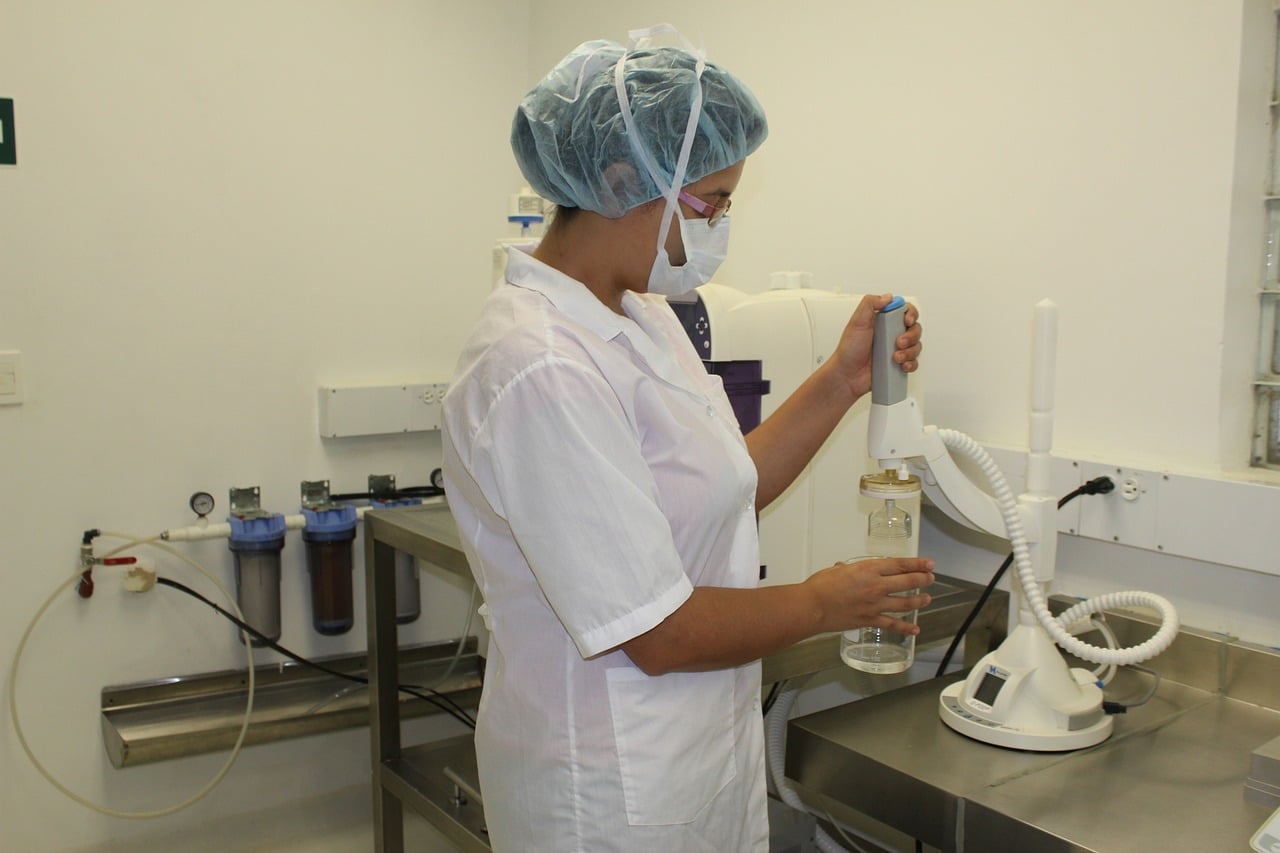How Can Genetic Testing Inform Tailored Training and Nutrition Plans for Athletes?

In recent years, the field of genetics has drastically transformed various sectors, including the realm of sports and fitness. As athletes and fitness enthusiasts, you have perhaps heard of the intriguing concept of genetic testing related to training and nutrition. Have you pondered upon the question, "Can my DNA impact my fitness performance?" If so, then this article is for you. We will delve into the fascinating world of genetics and its implications on sports training, nutrition, fitness performance, and health risk assessment.
Understanding Genetics in Sports and Fitness
Before diving into the nuances of genetic testing, let us first understand the basics of genetics in relation to sports and exercise. Our DNA, the molecular basis of heredity, plays a significant role in determining our physical capabilities and endurance. In other words, our genetic makeup or genotype influences our athletic performance.
Avez-vous vu cela : What techniques are effective in cultivating youth leadership skills through team sports?
DNA is composed of numerous genes, each one encoding for a specific trait. Some genes are associated with muscle fiber type distribution, which can influence our inclination towards either endurance-based or power-based activities. In addition, certain genetic variations have been linked to nutritional metabolism and the body’s response to different types of diets, shedding light on the role of genetics in nutrition.
While this knowledge was available for years, the application was limited due to the lack of practical means to identify these genetic variations. But this changed with the advent of genetic testing. Today, numerous athletes and fitness enthusiasts use genetic testing as a tool to optimize their training strategies and nutrition plans based on their unique genetic profile.
A lire également : What are the cultural and social impacts of hosting mega sports events like the FIFA World Cup or the Olympics?
Application of Genetic Testing in Training and Nutrition
Perhaps, the most compelling application of genetic testing in sports and fitness lies in personalizing training and nutrition plans. The idea is simple: if we can identify our genetic predispositions, we can tailor our training and diet to match our body’s innate tendencies, thereby maximizing performance and minimizing health risks.
For instance, endurance training might elicit better results for individuals with a certain gene variant, while others might benefit more from strength training. Similarly, some may metabolize carbohydrates more efficiently, suggesting a higher carbohydrate diet might be beneficial, while others might have a genetic predisposition to metabolize fats better, implying a low-carb, high-fat diet could suit them.
In essence, genetic testing offers a science-based, personalized approach to training and nutrition, allowing you to work with your genetics, not against them.
The Role of Genetic Testing in Improving Athletic Performance
While systematic training and proper nutrition are key to performance enhancement, understanding your genetic predispositions can provide a significant edge. Genetic testing offers insights into various aspects affecting athletic performance, including muscle composition, recovery, injury risk, and even psychological traits.
For example, a gene known as ACTN3 is associated with muscle fiber type composition. Specific variations in this gene have been linked to a higher proportion of fast-twitch muscle fibers, which are particularly beneficial for sprint and power-based activities. Knowing your ACTN3 genotype can help tailor your training to leverage your innate muscle composition.
Also, genetic testing can reveal predispositions to certain injuries, enabling athletes to implement preventive measures in their training. This personalized injury prevention strategy can dramatically reduce downtime and enhance overall performance.
Evaluating Health Risks through Genetic Testing
In addition to performance enhancement, genetic testing can be instrumental in assessing health risks, especially those stemming from intense training and dietary changes. Certain genetic variants are associated with increased risk for conditions like heart disease, osteoporosis, or iron deficiency, which can be exacerbated by intense exercise and specific nutritional habits.
By identifying these risks, athletes can modify their training and nutrition plans accordingly to minimize potential harm. For example, those with a genetic risk for iron deficiency could be advised to include more iron-rich foods in their diet, while athletes with a predisposition to osteoporosis might need to incorporate weight-bearing exercises in their regimen to promote bone health.
The Ethics and Caveats of Genetic Testing in Sports
While the benefits of genetic testing in sports and fitness are manifold, it also brings up ethical considerations and potential limitations. Concerns have been raised about the accuracy and predictive power of these tests, as many traits like athletic performance and health risks are influenced by numerous genes and environmental factors.
Moreover, there is a risk of genetic discrimination, where individuals could be pigeonholed based on their genetic predispositions. It’s therefore important to adopt a balanced view, considering genetic testing as a tool for information and guidance, rather than an absolute predictor of athletic ability or health risks.
In conclusion, as our understanding of sports genetics continues to evolve, it holds exciting potential for athletes and fitness enthusiasts. Genetic testing is no magic bullet, but it offers valuable insights that can help you fine-tune your training and nutrition strategies, paving the way for optimized performance and health.
How Genetic Testing Can Personalize Training Regimes and Diet Plans
Expanding on the concept of personalized nutrition and training, it is remarkable how genetic testing can uniquely tailor workout regimes and diet plans to enhance sports performance. Through a simple DNA test, you can gain insight into your genetic profile and leverage this information to optimize your fitness journey.
Numerous research papers, accessible through platforms like Google Scholar, PubMed and PMC Free, have demonstrated the effects of different genetic variants on body composition, endurance performance, and metabolic rate. For instance, participants with certain genetic variants showed a significant improvement in athletic performance when their training was aligned with their genetic predisposition.
As an athlete, understanding your genetic predispositions can provide strategic insights. If your genetic test reveals that you are more disposed to endurance performance rather than power-based activities, you might focus more on enhancing your cardiovascular endurance. Alternatively, if your genetic variants favor muscle strength, then strength training and muscle building exercises could be prioritized in your training routine.
Moreover, genetic testing can also inform your dietary choices. A genetic predisposition to efficiently metabolize carbohydrates could indicate the benefit of a higher carbohydrate diet. Conversely, a genetic profile inclined to fat metabolism might benefit from a low-carb, high-fat diet.
Genetic Testing: A Game Changer in Sports Medicine
In the realm of sports medicine, genetic testing is proving to be a game changer. It not only contributes to enhancing sports performance, but also plays a vital role in injury prevention and management.
Monitoring the health fitness of athletes has always been paramount, and with genetic testing, this monitoring can be refined. Certain genetic variants may predispose an athlete to specific health risks, such as bone fractures, ligament tears, or iron deficiency anemia. By identifying these potential risks through DNA testing, preventative measures can be implemented, reducing downtime and avoiding long-term health issues.
Offering personalized injury prevention strategies, genetic testing can significantly reduce the risk of sports-related injuries. For instance, athletes prone to ligament injuries due to their genetic makeup might benefit from exercises that strengthen these ligaments.
Furthermore, particular genetic markers can indicate a predisposition to quicker recovery post-exercise or post-injury. Knowledge of these markers can guide training intensity and frequency, as well as rehabilitation processes, for optimal recovery and performance.
Conclusion: Striking a Balance with Genetic Testing
Genetic testing, while offering a wealth of insights into personalized nutrition and training, is not without its limitations and ethical considerations. As with any scientific tool, it is essential to strike a balanced view. While these tests provide valuable information about genetic predispositions, they do not guarantee athletic success or failure. Environmental factors, training, nutrition, and mental resilience all play crucial roles in shaping sports performance.
Moreover, it is important to remember that our understanding of sports genetics is an evolving science. With each new research article and study, we discover more about the nuanced interplay between genetics and athleticism. Genetic testing should therefore be seen as a part of a broader approach, incorporating elements like training, nutrition, rest, and mental preparedness, to optimize sports performance.
In summary, genetic testing offers an exciting tool for athletes and fitness enthusiasts alike, providing valuable insights into individual genetic profiles. With careful interpretation and a balanced approach, this information can pave the way for personalized training regimes, dietary plans, and injury prevention strategies, unlocking new potential for optimized performance and health.
